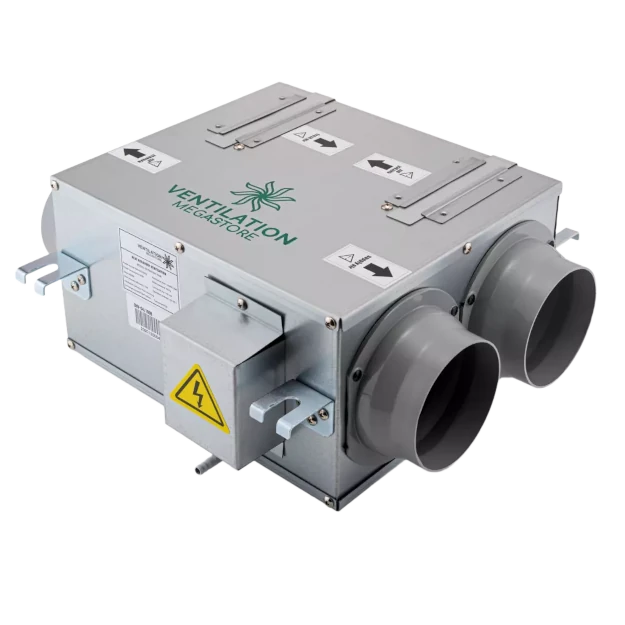Having a constant stream of fresh air is important in every household to help prevent illness, condensation, damp and mould.
While there are many options available to improve ventilation, the advantages of whole house ventilation using a mechanical heat recovery system is often the most effective choice…read on to find out why!
Ventilation is the process of removing polluted, stale air from a room and supplying fresh, clean air from outside. This can be done by natural or mechanical ventilation, or a combination of the two.
In 2023, 3.8% of homes in England have some form of damp problem - equating to approximately 912,000 households. What’s more, the NHS estimates that it could save up to £38 million a year on treating patients with damp and mould-related illnesses, if issues were rectified.
Mould and damp is caused by condensation - when humid air comes into contact with cold surfaces to form water droplets. It typically occurs when temperatures drop overnight, resulting in us often waking up with water droplets on our windows (and sometimes walls and ceilings), mainly in winter months.
Good ventilation will help to reduce condensation by removing the moist air from your home before it has a chance to settle on a cool surface. As well as causing damage to your property which may be costly to repair, damp and mould can also have serious effects on your health - especially to individuals with underlying respiratory conditions, such as asthma.
Depending on your home and budget, there are different solutions for increased ventilation that you can adopt, but they vary in their effectiveness.
Natural ventilation
Rather than using any sort of mechanical element to push air around, natural ventilation relies solely on gaps in the building fabric, combined with any trickle vents or air bricks that may have been installed.
Natural ventilation can also be supplemented by opening windows and doors, however this is often only done in the warmer weather.
This type of ventilation is the cheapest and simplest option, and because of this, there are quite a few drawbacks.
Trickle vents don’t let much air flow unless it’s windy and they can produce a through-draught, whereas opening doors and windows to the outside can quickly make a home cold in winter. In the summer months, this method will likely let in lots of pollen and insects, and can also let in other pollutants from outside such as vehicle fumes.

Extractor fans
Extractor fans are one step up from natural ventilation, and have a simple mechanical element involved. In most houses, they’re typically located in rooms that generate more water vapour, such as kitchens and bathrooms.
They are effective in controlling moisture within the rooms that they are positioned in, however they also suck out the warm air that rises to the ceiling and they are relatively limited in the area they can cover. If you leave a door open after a bath or shower and water vapour escapes, it will travel around the house and can increase moisture levels in areas the extractor fan can’t reach.
While it’s essential to have extractor fans in your home, often these aren’t enough to completely reduce levels of moisture.
Mechanical ventilation heat recovery (whole house ventilation)
Mechanical ventilation heat recovery (MVHR) systems are modern, efficient units that provide ventilation to an entire house.

MVHR systems will ensure that condensation (and therefore damp and mould that can follow) doesn’t become an issue in your home, by removing all moisture-laden air and replacing it with filtered, heated air from outside.
As well as removing moisture, MVHR will also remove any harmful irritants in the air such as germs and pollen, causing illness and hay fever. They are also energy efficient, using no more than extractor fans because the built-in heat exchanger recovers warmth from outgoing air to heat the fresh air coming into the building. This means that it’s highly efficient, and helps to reduce your heating bills.
Are you interested in reducing condensation and helping your family to stay fit and healthy? Get in touch with our team of experts today to find out more.

